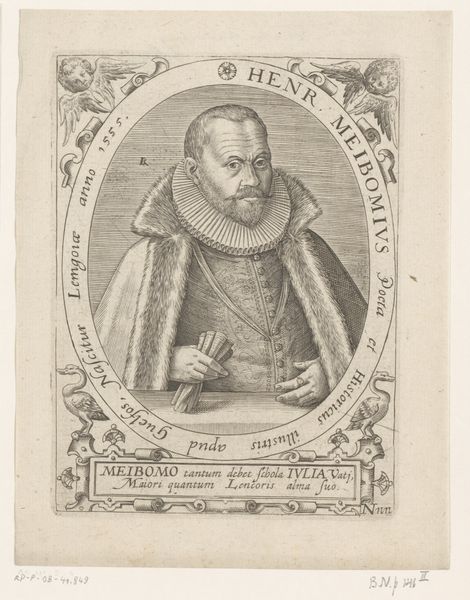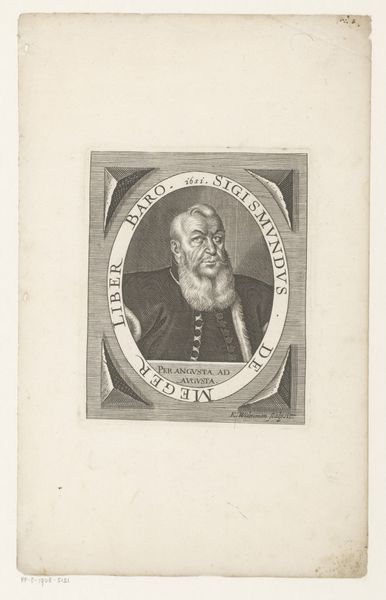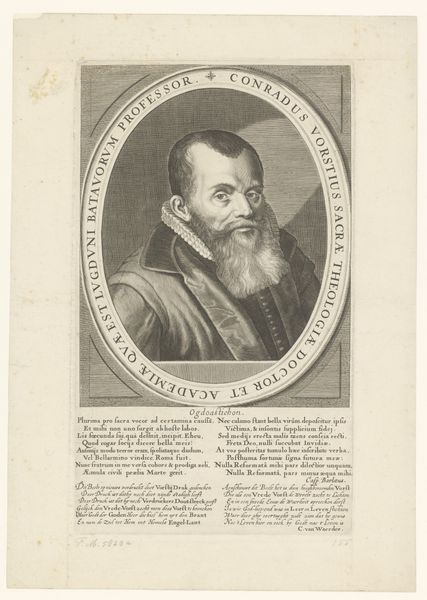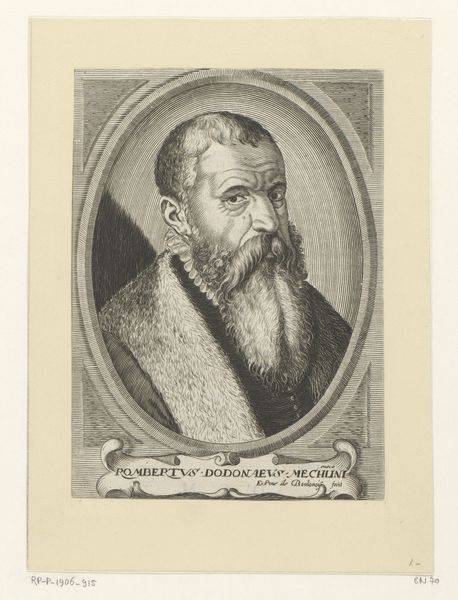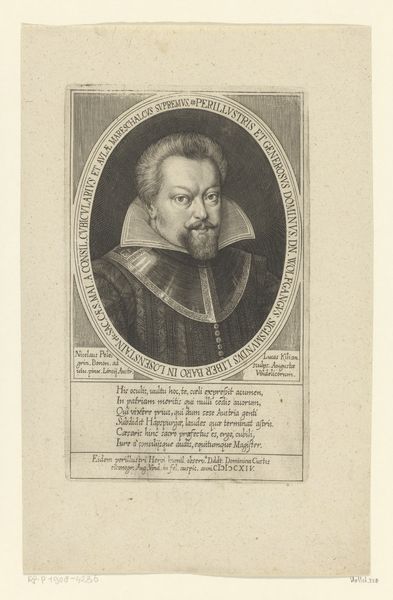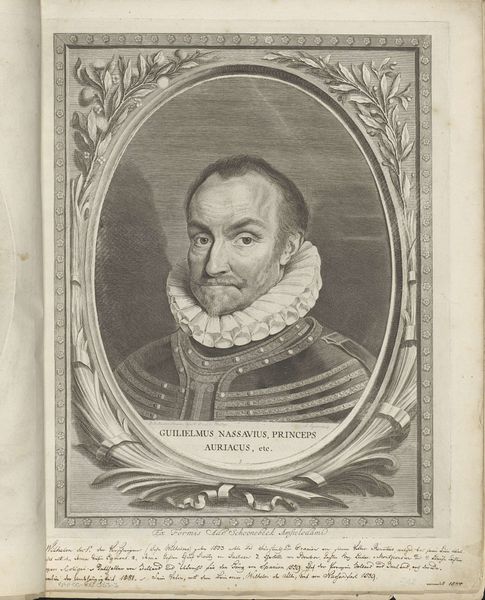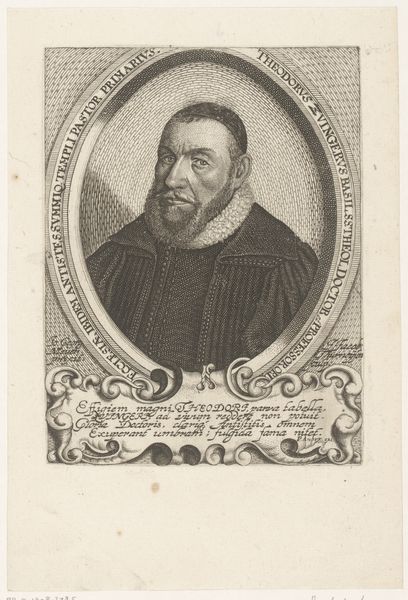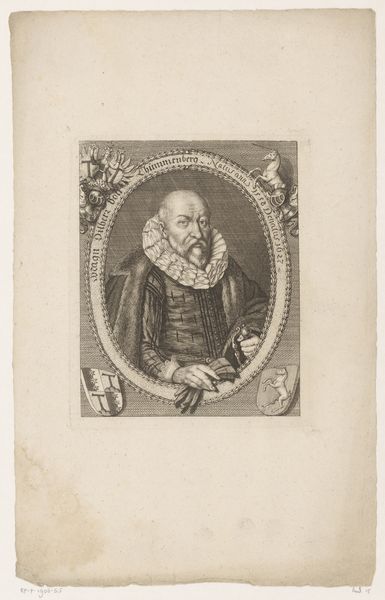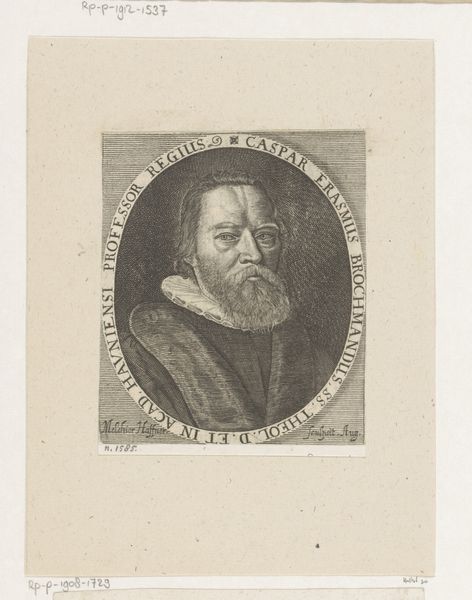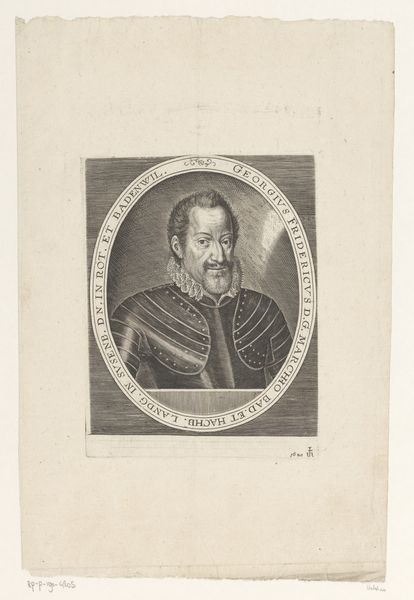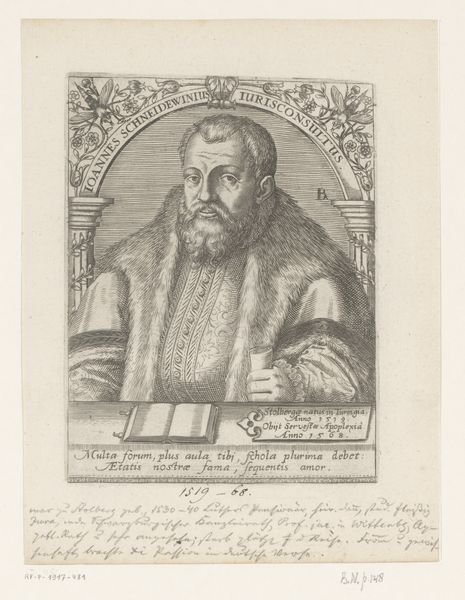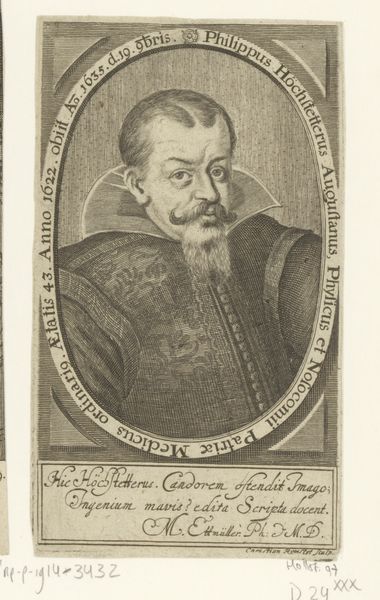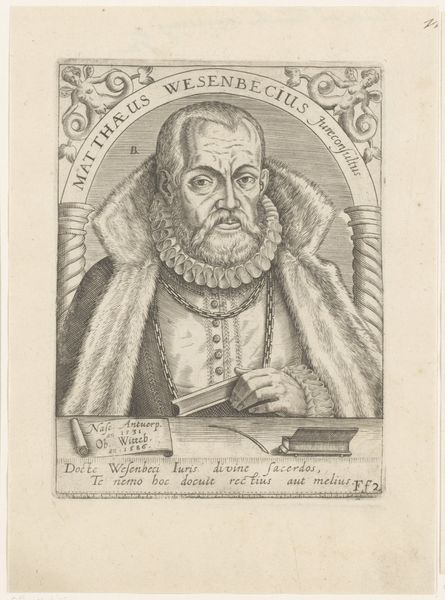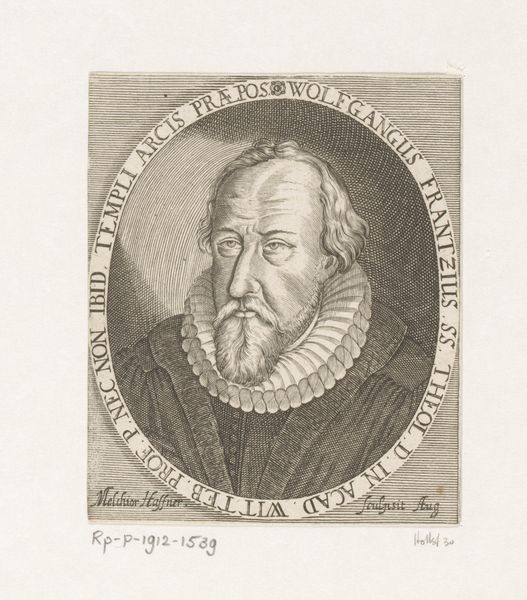
print, engraving
#
portrait
#
baroque
# print
#
old engraving style
#
archive photography
#
historical photography
#
pencil work
#
history-painting
#
engraving
Dimensions: height 152 mm, width 111 mm
Copyright: Rijks Museum: Open Domain
Hans Troschel created this portrait of Johann Wolfgang Rötenbeck, likely as an engraving, sometime between 1585 and 1628. Immediately, the tight oval framing Rötenbeck's head and shoulders draws our eye. The intricate, almost obsessive detail in the lines etching his face, beard, and ruff create a palpable texture. The artist uses the formal structure to suggest the sitter's importance. Encircling Rötenbeck is an inscription, a visual emblem of his identity and status. The upper corners contain heraldic devices, further encoding social standing. Consider how Troschel uses the oval frame not merely as a border, but as a structural device that contains and presents its subject. This calculated organization of space and symbolic language reflects the values of the era, where clear social hierarchies and the display of status were intrinsic aspects of representation. Even in portraiture, art serves as a carefully constructed sign.
Comments
No comments
Be the first to comment and join the conversation on the ultimate creative platform.
